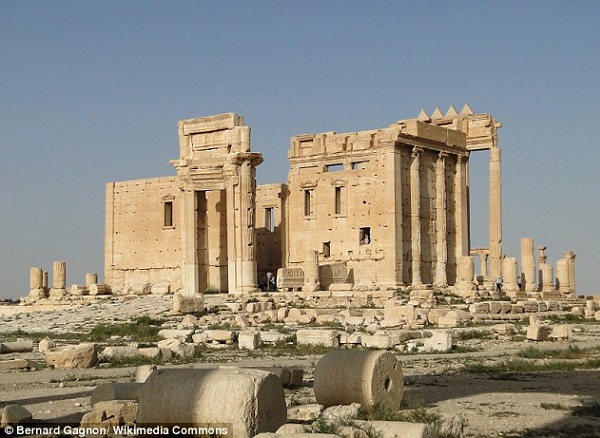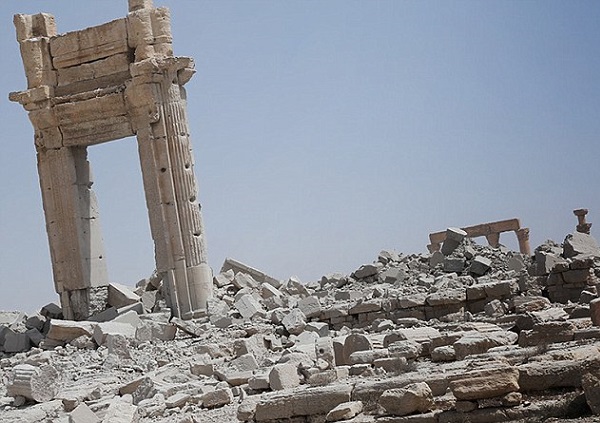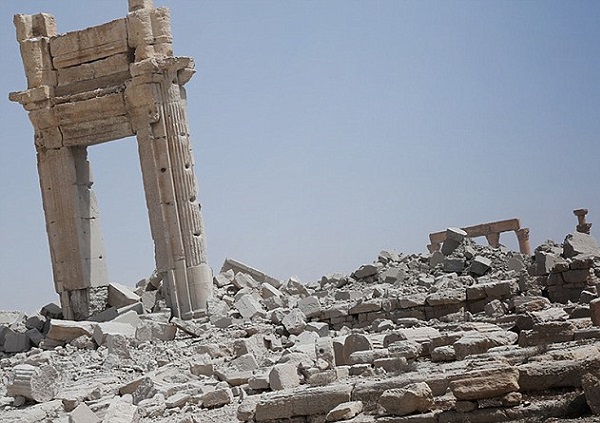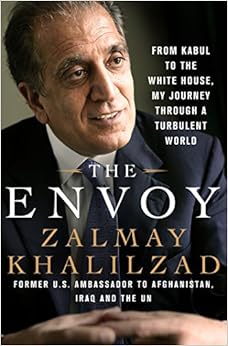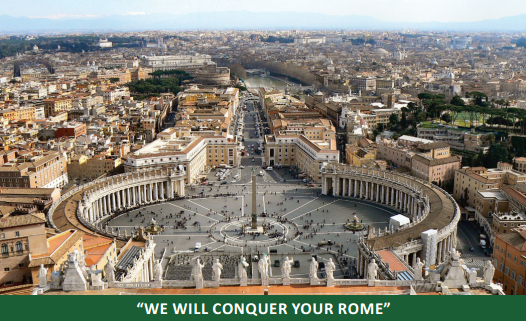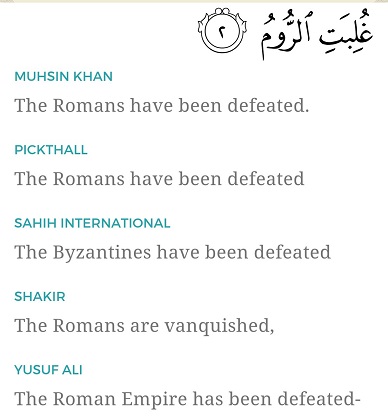[by Mark Safranski / “zen“]
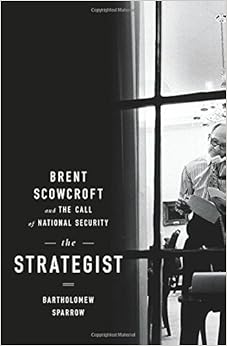
The Strategist: Brent Scowcroft and the Call of National Security by Bartholomew Sparrow
by Bartholomew Sparrow
In writing The Strategist, Bartholomew Sparrow has demonstrated that his talents as a biographer match his skill as a scholar. Cautious and careful, in telling the life and national security career of the highly regarded Brent Scowcroft, Sparrow never slips into hagiography, or gives Scowcroft a free pass in situations where it would be easy to do so. In retaining his critical eye, Sparrow has consequently permitted Scowcroft’s selfless character and frequently wise judgement to shine on their own merits in the historical record. The result is that The Strategist is a biography of remarkable power, like a great river, there are deep currents of insight below the gently moving surface.
At a sprawling 716 pages, Sparrow had room to investigate Brent Scowcroft’s family heritage in Mormon Utah, his journey at West Point from student to professor, his intellectual and professional mentors (Herman Beukema, William T.R. Fox, George Lincoln, Richard Yudkin, Andrew Goodpaster) and Scowcroft’s unfailing devotion to his wife Jackie, who became an invalid in the years when Scowcroft’s career embraced its largest burdens. It is this context that helps explain the strong ethical core that Scowcroft demonstrated time and again as a military officer, strategist and statesman as he handled brilliant but brittle personalities at the center of national security and foreign policy.
What Sparrow makes clear, time and again, was that it was Scowcroft’s unusually high emotional intelligence coupled with an amazing work ethic that provided Scowcroft with the high opportunities that allowed him to bring his talents as a strategist and manager of national security to bear. Quite simply, Scowcroft connected with people and his relentlessly consistent integrity in dealing with everyone – literally from interns to journalists to Presidents of the United States – was such that his word was regarded as being as good as gold. His equanimity too was almost as legendary as his ethics. ” I never heard Scowcroft get angry” is a frequent refrain of former colleagues. His detractors are few: Dick Cheney, who as Vice-President had a bitter break with Scowcroft over the Iraq War, had nothing but praise to say of his former friend’s integrity and judgement.
Not only did Scowcroft forge an unusually close strategic partnership with two presidents (Ford and Bush I) but he managed to win the respect and trust of so paranoid and aloof a figure as Richard Nixon (it is far less clear that Scowcroft trusted Nixon). Scowcroft’s secret was that inside a Beltway where politics and personalities trended Machiavellian, he operated in a zone of trust. Even the Clinton and Obama administrations sought Scowcroft’s counsel because they were assured of his absolute discretion and impartial judgement.
Asked to compare himself with his former boss, Henry Kissinger, Scowcroft demonstrated that he knew his strengths and his limitations. Sparrow writes:
“….Scowcroft had his own well-developed sense of military strategy and world history. He was also brilliant at questioning and evaluating the merits of his new ideas and policy options as well as a superb bureaucratic operator who knew how to put concepts into practice. But unlike Kissinger, Scowcroft said he was better at reacting to and evaluating ideas than he was dreaming them up; that was why he liked to hire people smarter than himself. ‘I don’t have a quick, innovative mind’ he claimed. ‘I don’t automatically think of good new ideas. What I do better is pick out good ideas from bad ideas.”
Was Scowcroft a good strategist?
The first problem in answering this question, at least from reading Sparrow, is that Scowcroft’s rarely equaled skill as a manager of the NSC decision-making process tends to greatly overshadow and blur his record as a strategist. Scowcroft’s National Security Council, which worked well under Gerald Ford when the greatest of Washington prima donnas, Henry Kissinger, reigned as Secretary of State, hummed like a machine under George H. W. Bush. One would have to go back to Eisenhower to see such a comparable example of smooth national security decision making. The key was the absolute trust Scowcroft established, as Sparrow records:
“Bush, Baker, Scowcroft and other senior administration officials were able to establish relationships based on trust. ‘One of the reasons why the system worked was that Baker and Cheney totally trusted Brent to keep them informed and to fairly represent their views to the president,’ Gates said. ‘He was the only national security adviser in my view that was ever so trusted by the two other principals’ – and Gates had served under six US presidents at the time he wrote the above, before his time as defense secretary under George W. Bush and Barack Obama.
Scowcroft’s management of the NSC process also worked well because of his creation of other interagency groups to expedite decision making. One of his key innovations (retained by subsequent presidential administrations) was the formation of the Principals Committee which included the Vice-President, the secretary of state, the secretary of defense, the director of central intelligence, the chairman of the Joint Chiefs of Staff, the White House Chief of Staff and the national security adviser – all meeting without the president.”
Scowcroft achieved the holy grail of natsec policy – “whole-of-government” planning and execution. Part of the reason was that Brent Scowcroft was extraordinarily close to the elder President Bush, far closer than in the dysfunctional yet highly successful partnership between Richard Nixon and Henry Kissinger. That accounts for some of it, but Condi Rice was just as close to George W. Bush as Scowcroft had been to Bush’s father yet her tenure as national security adviser is given low marks, not least for being completely unable to rein in Secretary of Defense Donald Rumsfeld or Vice-President Dick Cheney who was virtually the prime minister of the administration in its early years. The difference may have been that Scowcroft could not only speak with the President’s unquestioned authority, he knew better when to do so than Rice and consequently, seldom needed to do it at all.
The second problem in answering “was Scowcroft a good strategist” is that he clearly was not and never aspired to be a grand strategist in the manner of Richard Nixon, George Kennan or Otto von Bismarck. Scowcroft never approached national security by attempting to reshape the geopolitical calculus despite the regrettable tagline of “new world order”. Instead, Scowcroft’s strategic philosophy was to manage risks as they emerged by peacefully integrating a collapsing rival state system piecemeal into the existing international community status quo at the lowest possible cost of disruption. Maximizing geopolitical opportunities or strategic gains was not his primary yardstick.
This is why as Sparrow, relates, that Scowcroft and the senior President Bush strongly discouraged “triumphalism” in American rhetoric about the Cold War while trying to work with Mikhail Gorbachev to manage the Soviet collapse; and why the break up of Yugoslavia was viewed with such distaste (Scowcroft had served in the embassy in Belgrade under Kennan). Conversely, this is also why Scowcroft was so eager to use American military force in Iraq, to defend and reinforce post-Cold War international legal norms from Iraqi aggression, but not to march to Baghdad and overthrow Saddam’s dictatorial regime. Brent Scowcroft deserved the credit for both his early insight that force would be required to remove Iraq from Kuwait and the wisdom of the Bush administration to wield overwhelming force with restraint and diplomatic finesse. When the second Bush administration – an administration filled with his former colleagues – opted to march on Baghdad, it would have been a simple matter for Scowcroft to remain silent, but instead he offered counsel. When his advice was rebuffed, Scowcroft did the harder thing and made his case against the Iraq War public even though it cost him friendships and access to the President of the United States. A rare choice in Washington.
Scowcroft is indeed a strategist by any reasonable measure and something greater, a statesman for whom the country and its national interest always came first.
Strongly Recommended.
